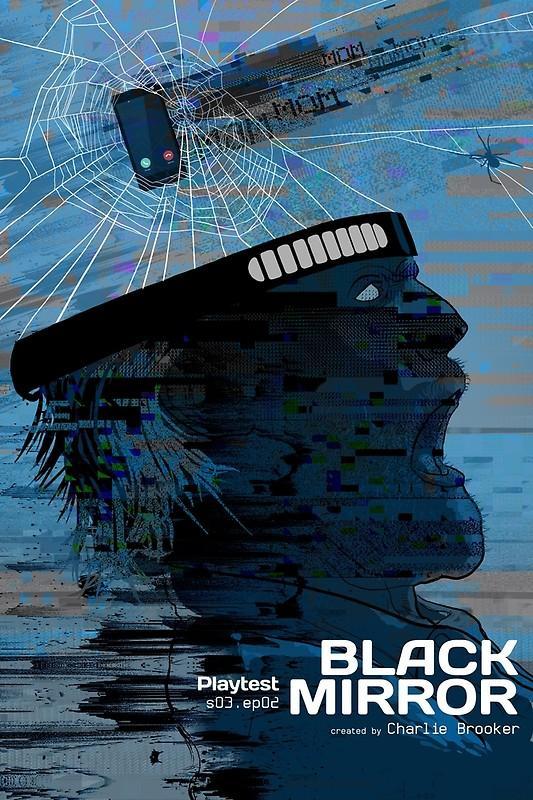Black Mirror is a famous dystopian TV series about the potential horrors of technology in the future. Charlie Brooker, the creator of the show, reveals in his article published in The Guardian that Black Mirror refers to the mirror you find “on every desk, in the palm of every hand: the cold, shiny screen of a TV, a monitor, a smartphone”. When your phone is switched off, all you can see is a black mirror staring at you. Technology in Black Mirror is more advanced, but the question the show raises is: “Does technology necessarily make our lives better?” Black Mirror, more or less, warns us that this might not always be the case.
In this article, I will focus on three episodes of the series entitled The Entire History of You, White Christmas, and Playtest, because they all revolve around the idea that the brain can act as a device that can either record, be manipulated, or accessed for data. In The Entire History of You, everybody is endowed with a “memory implant” that allows the brain to record every single event/situation that happens to a person in his/her life, so that one can always recall it as if watching a recorded video.
In White Christmas, the “cookie” is introduced; it is a digital copy of a person’s brain. While in Playtest, the protagonist participates in testing a new game that uses virtual reality. The game provides a scary experience for the players, but it takes things further; it does not just show them some scary images, it also has access to their brains and what scares them most. The game adjusts the scary experience to a person’s real fears; thus, it becomes too scary, as the brain cannot distinguish reality from the virtual reality experience.
In Black Mirror, data can be downloaded from the brain to use for different purposes; is this the future of mankind? Do we have the ability to uncover the mystery of the human brain? Nowadays, devices have been developed to record “the brain activity”, not your thoughts; this technology promises the prospect of controlling seizures. Also, some technologies try to figure out what you are looking at by analyzing your brain activity. Scientists have also developed a brain-like device; a chip that has “artificial neurons” and is capable of mimicking “the behavior of neurons”.
An understanding of how our brain creates and stores memories brings us closer to unveiling its mystery and one day maybe to read thoughts. A group of volunteers were asked, after wearing virtual reality headsets, to walk through a building. Their activity was monitored through an advanced brain scanning machine—functional Magnetic Resonance Imaging (fMRI)—the purpose of the research was to study patterns of the brain as it processes and saves data. If brain patterns are understood, they can lead to marvelous discoveries, making mind reading possible.

Virtual reality has also been applied in the episode Playtest, but what is virtual reality? It is a technology that includes most of your senses; your mind is tricked into believing you are somewhere else using special devices as goggles and sensory gloves to provide certain sensations. If you have seen anyone playing a virtual reality game, you will feel how much detached they look from their surroundings. The purpose of virtual reality is sometimes to place people in situations that might not be possible in realistic settings.
There are some useful applications to virtual reality today. For example, in the medical field, images of the brain areas where surgeons need to operate are taken and used to create a virtual reality experience for the doctors so they can practice, see, and feel the areas of the brain that need their attention, in addition to training new doctors. Of course, there are some benefits; but as with any technology, there are some cons; being totally detached from reality is one of them. Research is ongoing and the total effect of virtual reality on the brain is still unknown.
The technological breakthroughs that we observe daily in monitoring brain activities and trying to decode its signals make the predictions of the show not so far-fetched. Although a fictional series, Black Mirror raises concerns as to the dangers technology poses on our wellbeing; to name a few, the ethical dilemmas and the implications of accessing someone else’s thoughts. Technology, in short, is a double-edged weapon that we need to know how to use wisely in order to survive.
References
britannica.com
imdb.com
newgenapps.com
newscientist.com
nih.govinterestingengineering.com
theguardian.com
thevirtualrealityblog.com